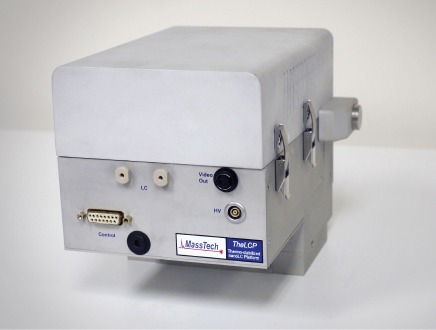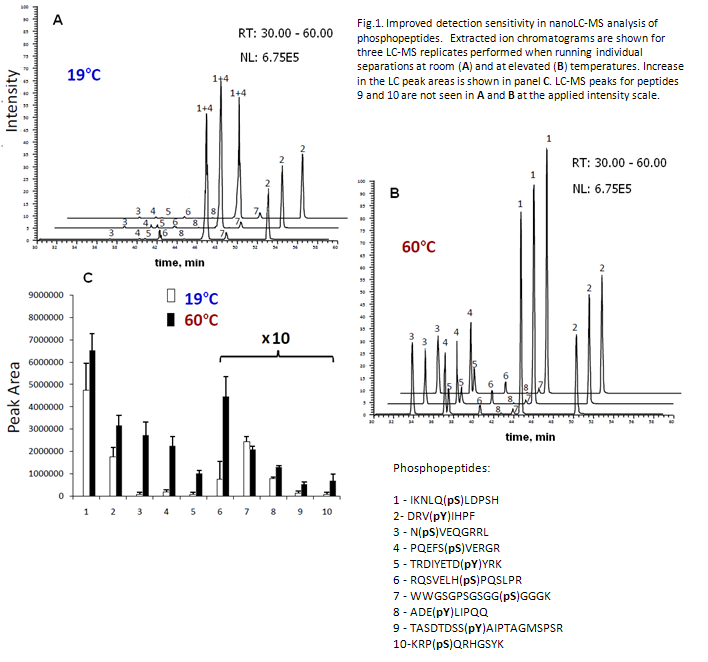
MassTech introduced The-LCP (Thermo Stabilized Platform for High Temperature nanoLC Separations) at Pittcon in 2012, in order to help customers using custom length capillaries with their nanoLC-MS experiments. Since then it has been independently tested in two proteomics research facilities.
Column temperature plays an important role for retention times, peak shapes, and peak intensities, and thus, the temperature needs to be accurately controlled for reproducible nanoLC-MS runs. In addition to sensitivity and resolution improvements, elevated column temperature can reduce column backpressure when long nanoLC columns with 3-micron and sub-2 micron particles are in use for high chromatographic resolution. The-LCP can provide accurate (within 0.05oC) and homogeneous temperature control over the nanoLC from room temperature to 75oC and it accommodates fused-silica capillary LC columns of arbitrary length used for the LC-MS analyses at flow rates from 10 to 600 nL/min (patent pending). Besides accurate temperature control, The-LCP integrates nanoLC with electrospray. It comes with two CCD cameras to observe the electrospray from different angles.
The-LCP is compatible with mass spectrometers from all major vendors. Independent research studies have shown that using highly stabilized elevated temperatures leads to improved sensitivity, reproducibility, and chromatographic resolution. Running separations at 60-70oC in nanoLC-MS analysis of unmodified peptides, post-translationally modified peptides and intact proteins brings a substantial reduction in peak tailing and diminishes the effect of ion suppression. Figure 1 shows the increase in peak intensities and areas of phosphorylated peptides at 60oC. Figure 2 demonstrates an improved peak shape at 60oC compared to room temperate in analysis of 50 EICs in the LC-MS study of 10-protein digest. Figure 3 shows improved run-to-run peptide retention time reproducibility in the nanoLC-MS analysis of complex peptide mixture (mitochondria cell lysate digest) separated at 60oC. Conditions for all figures: nanoLC column packed with Magic C18, 3 μm, 100 Å pore size, 75 μm i.d., 20 cm length, LC gradient – 40 min, MS instrument – LTQ-Orbitrap.

